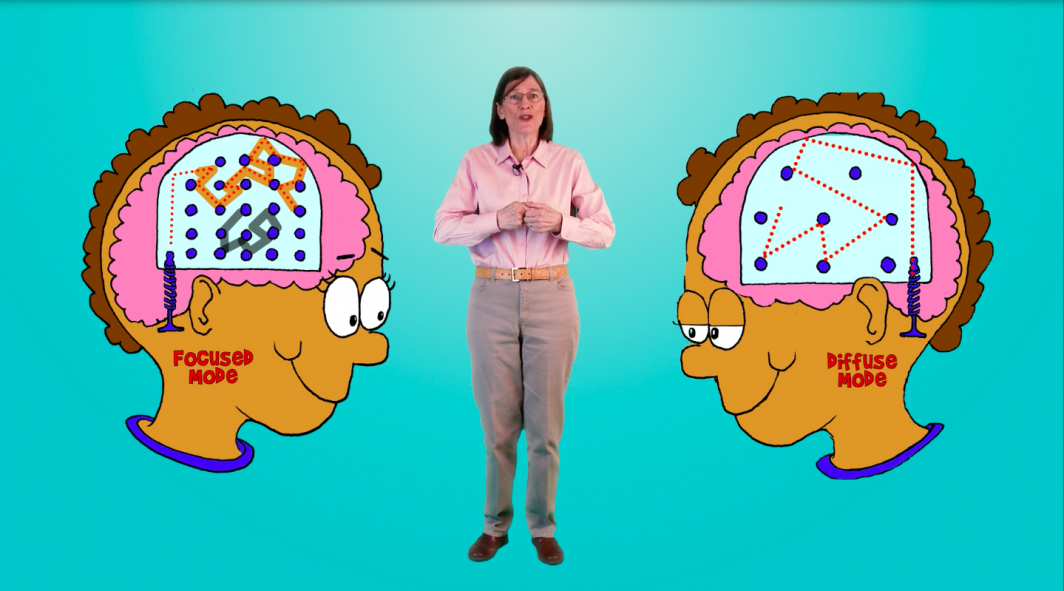EdPlus at ASU partners to provide universal learning techniques to youth

Author Barbara Oakley.
When Americans are asked why more students don’t pursue a degree in the STEMScience, technology, engineering and mathematics fields, they are most likely to point to the difficulty of these subjects, with about half of adults (52 percent) believing the main reason young people don’t pursue STEM degrees is they think these subjects are too hard, according to a 2018 Pew Research Center survey.
However, when students have the right tools and techniques, they enjoy these topics and succeed. In an effort to combat the misconception that some subjects are "too hard" to learn, EdPlus at Arizona State University has partnered with popular online learning platform Coursera and author Barbara Oakley. Together, they will expand the reach of Oakley's online course, "Learning How to Learn," in advancement of ASU Universal Learning initiatives.
Offered through the Coursera platform, "Learning How to Learn for Youth" was designed to provide students the confidence needed to know that they can be successful at school, particularly when it comes to STEM courses, and provides students access to learning techniques used by experts in the fields of art, music, literature, math, science, sports and other disciplines.
Regardless of the student's current skill level, the course applies learning techniques in areas such as self-efficacy, summarization, memorization, practice testing and study tips, to help youth master new topics, change the way they approach and think about a problem and improve their lives.
Oakley, a professor of engineering at Oakland University in Rochester, Michigan, and a Ramón y Cajal Distinguished Scholar of Global Digital Learning at McMaster University, first launched "Learning How to Learn" in 2014. Since its launch, the course has seen more than 1.5 million learners move through the course. It was following the launch of that initial course that Oakley began hearing from parents who thought the course topics would be beneficial for their children, and started working to developing "Learning How to Learn for Youth."
"Learning How to Learn for Youth," Lesson 1: “Easy Does It: Why trying too hard can sometimes be a problem.” Photo courtesy EdPlus at Arizona State University
In the development of this new course, and following a meeting with Arizona State University President Michael M. Crow during the 2018 Coursera Partners Conference, Oakley was introduced to EdPlus’ Lifelong Learning Initiatives team to help transform the course from an adult learner to a global youth audience.
“ASU is committed to fostering the skills necessary in youth to become lifelong learners and there isn’t a more relevant topic than 'Learning How to Learn' which positions a student to be a successful learner both in informal and formal learning settings,” said Bethany Weigele, senior director for lifelong learning initiatives at EdPlus at ASU. “Often, what prevents a student from being successful at university isn’t his or her IQ, but rather the student not being equipped with the right mindsets and tools that allow them to work smarter and faster. This course helps change that.”
Having already done research into the tools that would help this population of students become successful, Oakley needed a higher education partner that understands not only the student audience, but also had the global, technical and pedagogical knowledge to create the online course.
“The goal of the course is to provide kids, as well as teachers and parents, a fun way to learn about learning. Students often think they can’t tackle a particular subject because they don’t have the genes for it,” according to Oakley. “But the reality is, students can struggle with subjects just because they don’t know how to learn. With this course, I hope to help broaden students’ abilities to succeed in a wider variety of subjects.”
Through her partnership with EdPlus, Oakley hopes to help students better handle their natural tendencies to procrastinate on subjects and to help battle the students belief that they “don’t have the ability to do certain subjects, when it’s actually that they don’t know how to use their brains effectively.”
Since its launch in December 2018, "Learning How to Learn for Youth," which is targeted for learners ages 12-18, has seen more than 2,600 youth enroll and start the course, with more than 370 learners completing the course within the first two months.
“Enabling student success and breaking down barriers to access to education are critical components of the New American University aligned with this project. If you’re a student working a full-time job to make ends meet or a single mom, if homework takes too long or 'doesn’t come naturally,' finishing the degree becomes very difficult,” said Weigele. “This course gives students the tools needed to be successful at a university and puts it in a language designed for an audience before they start school and realize they are in trouble.”
Learn more about "Learning How to Learn for Youth" and how to enroll in the course.
More Arts, humanities and education

Sun Devil seizes opportunity to ‘be the change’ at ASU
When Jayla Jackson not only won Harvard University’s international debate competition but did so as part of the first undefeated…

New architecture program teaches students how to design with Indigenous principles in mind
Imagine a Tempe Town Lake free of concrete, its banks lush with native creosote and wildflowers, with winding dirt paths.That…

Dual-language psychology program at ASU shows the importance of cultural context
Context matters — even in as seemingly a straightforward situation as quitting smoking.A recent discussion in an Arizona…
